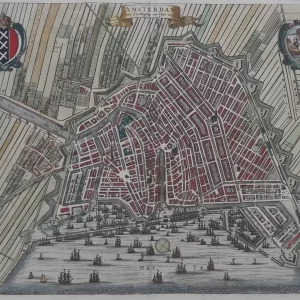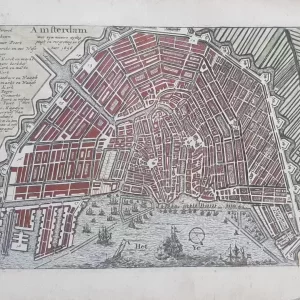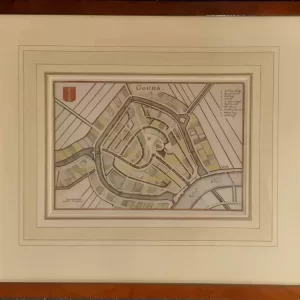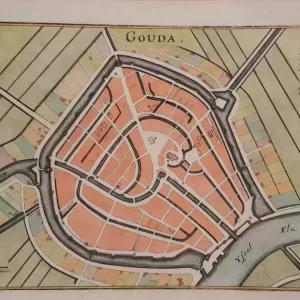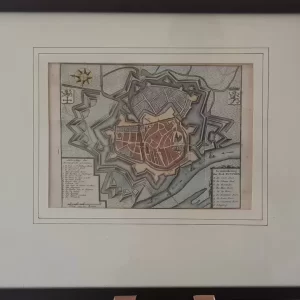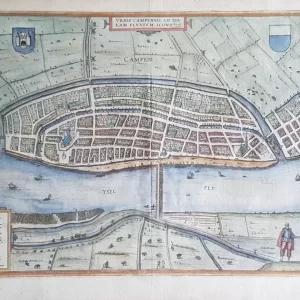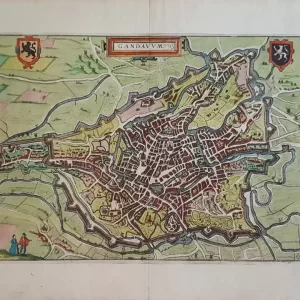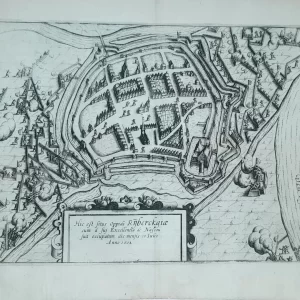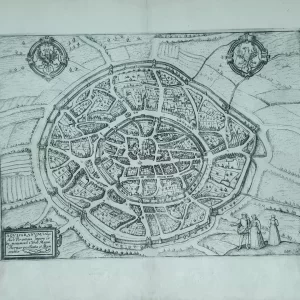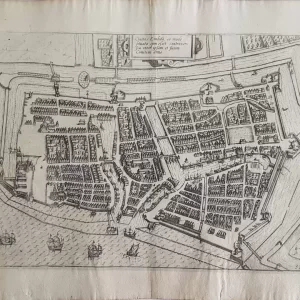Old city maps offer a fascinating insight into how cities developed over the centuries. These maps show streets, squares and vanished buildings and ramparts that once defined the cityscape. Surveyors usually started with on-site measurements, using measuring instruments such as the theodolite and measuring chains to determine the distances and proportions of streets, buildings and ramparts. By studying old city maps, historians and enthusiasts can discover how trade routes ran and which neighbourhoods were important. Moreover, old city maps show how cities grew and changed, making them valuable sources for research and heritage conservation.
Showing all 12 results
-
Old maps€120,00
James Basire (1730-1802)
Mons, The Capital City Of Hainault In Ye Low Countries (c. 1745)
-
Old maps€500,00
Caspar Commelin (1668 – 1731)
Amsterdam with d’uytlegging van ‘t Jaer 1613 (1693)
-
Old maps€1.200,00
Johann Baptist Homann (1664 – 1724)
Ichnographia Urbis in Tuscia primariae Florentiae (1731)
-
City maps€180,00
Jan Bouman (unknown – 1671)
Amsterdam met zyn niewe uytleggingh en vergrooting in ‘t jaar 1656 (1680)
-
City maps€90,00
Caspar Merian (1627 – 1686)
Gouda (c. 1654)
-
City maps€75,00
Caspar Merian (1627 – 1686)
Gouda (c. 1654)
-
City maps€70,00
Isaak Tirion (1705 – 1765)
Ground plan of the city of Zutphen (ca. 1750)
-
City maps€325,00
Frans Hogenberg (1535 – 1590) and Georg Braun (1541 – 1622)
Campen – Civitates Orbis Terrarum (1582)
-
Europe€200,00
Lodovico Guicciardini (1512-1589)
Gandanum (1610)
-
Old maps€50,00
Lodovico Guicciardini (1521 – 1589)
Hic est situs oppidi rijberckgiæ (1612)
-
Old maps€85,00
Lodovico Guicciardini (1521 – 1589)
AQVISGRANVM Vulgo Aich Per antiqua (1612)
-
Old maps€85,00
Lodovico Guicciardini (1521 – 1589)
Ciuitas Embda (Emden) 1612

